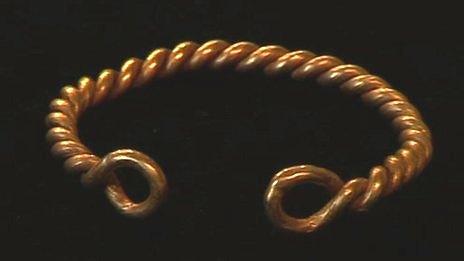Builders uncover Iron Age village in East Yorkshire
- Published
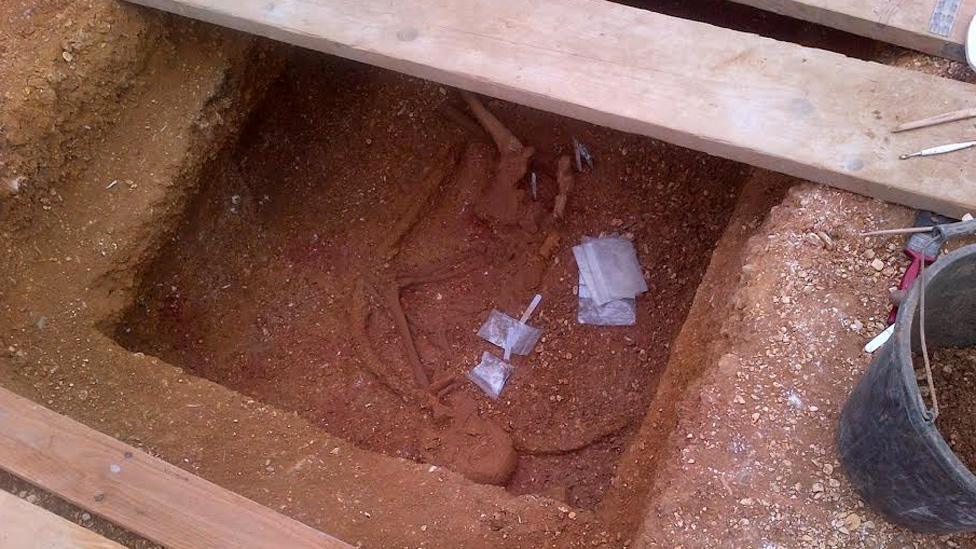
More than 75 graves known as Square Barrows were discovered
A "significant" ancient settlement unearthed by builders in East Yorkshire could boost experts' understanding of Iron Age Britain, it is claimed.
Archaeologists working on the housing development have dug up a sword and shield, spears and more than 75 burial sites, known as Square Barrows.
Parts of the site at Pocklington are believed to date back to about 800 BC.
Paula Ware, from MAP Archaeological Practice, described the find as a "hugely important discovery".
"We are hoping that these findings shed light on the ritual of Iron Age burial," she said.
"And, as we can assume from the shield and sword burials, these were significant members of society. So our understanding of culture and key figures of the time could be really enhanced."
Ms Ware added the site was unusual as most square barrow burial sites had been found in the south of England.
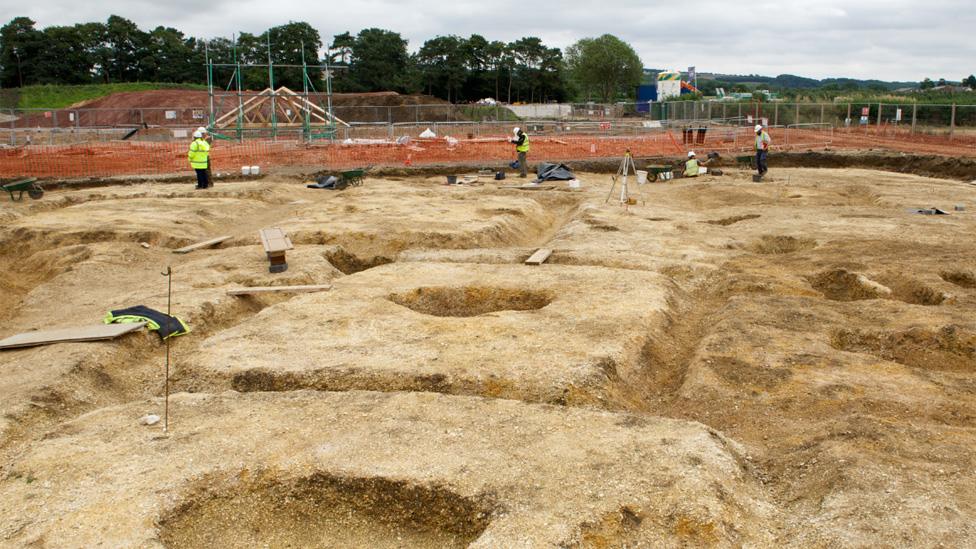
Work started on the site in Pocklington in September 2014
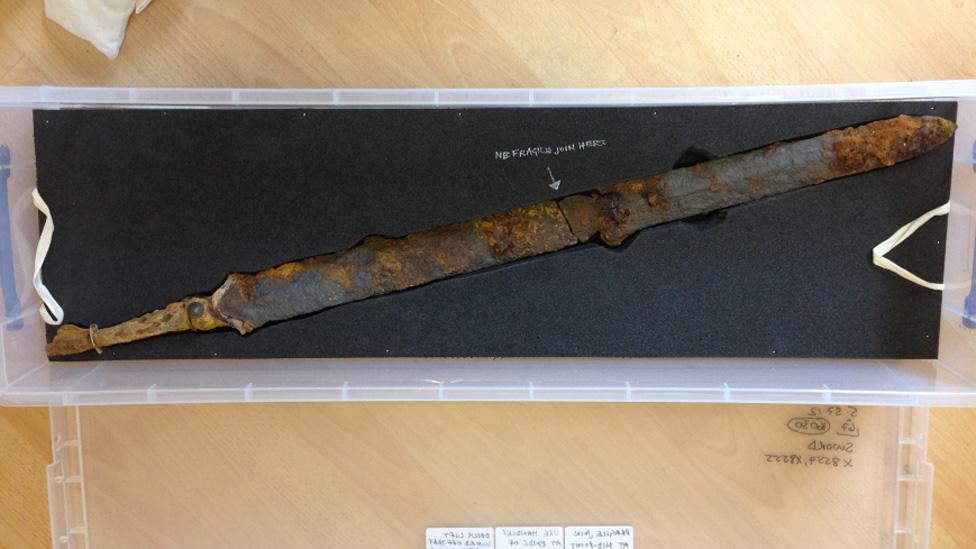
A sword and items of jewellery were found
Peter Morris, development director at David Wilson Homes, said he believed the findings were "of international importance".
"At present we are still at the early analytical stages of reviewing these findings," he added.
"However, we do understand that this discovery is very rare and of international importance."
Mr Morris said that further analysis would be carried out on the finds.
The period known as the Iron Age lasted in Britain for about 800 years, beginning in about 800 BC
As the name suggests people began to make iron weapons and tools and began to live in settled farming communities.
The excavation will feature on the BBC Four television programme Digging for Britain at 20:00 GMT on Thursday, 17 March.
- Published14 January 2016
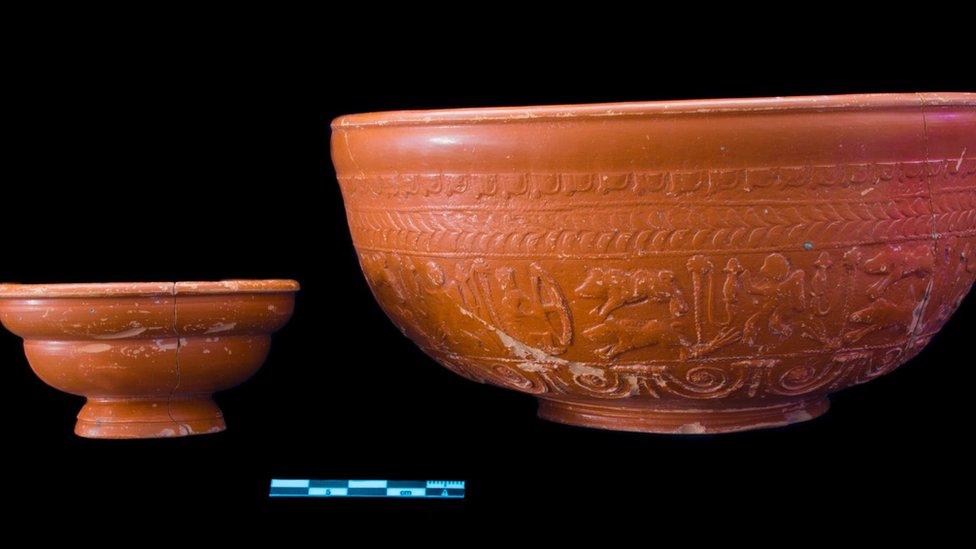
- Published14 October 2014
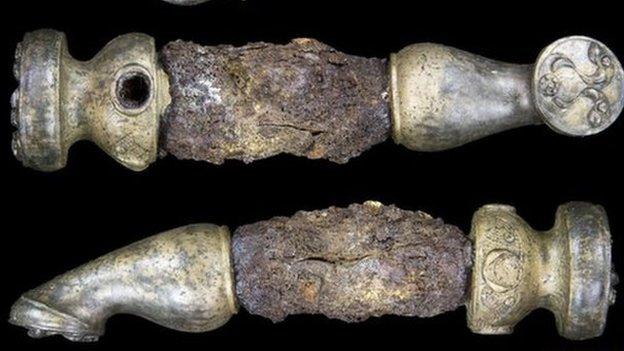
- Published12 October 2013
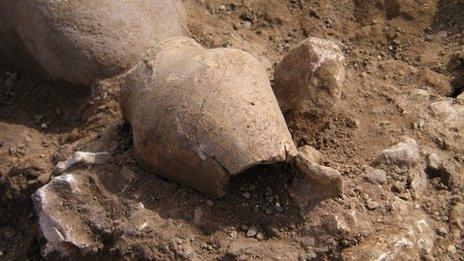
- Published1 February 2012
